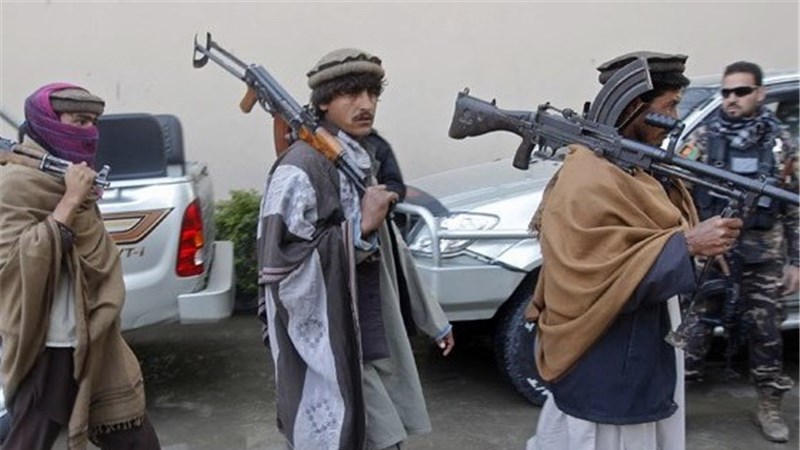Taliban’s Broken Promises – OpEd

Recently, Pakistan's Ambassador to the United Nations, Munir Akram, conveyed a stark message to the UN Security Council: the Taliban government in Afghanistan has failed to fulfill its promises to curb cross-border terrorism by the Tehrik-e-Taliban Pakistan (TTP). Despite repeated high-level communications, the Taliban's inaction has led to ongoing violence and significant casualties among both civilians and military personnel in Pakistan.
Ambassador Akram emphasized that the highest priority for the international community, Afghanistan’s neighbors, and Afghanistan itself, should be the eradication of terrorism emanating from Afghan soil. The TTP, a terrorist group with safe havens near Pakistan's borders, has been a relentless source of cross-border attacks. One particularly egregious attack, attributed to a TTP associate, resulted in the deaths of several Chinese engineers working on the Dasu hydropower project. This incident underscores the broader implications of the Taliban's failure to act, affecting not just regional stability but also international stakeholders.
In his address, Ambassador Akram urged the Security Council to compel the Taliban government to sever all ties with the TTP, prevent further cross-border terrorism, disarm TTP militants, and extradite the group's leadership to Pakistan. Despite the Taliban's assurances, meaningful action has been absent, allowing these terrorist groups to operate with apparent impunity within Afghanistan. This situation poses a direct threat not only to Pakistan but to all of Afghanistan's neighbors and the global community.
While advocating for continued engagement with the Afghan interim authorities, Ambassador Akram emphasized the necessity for clear objectives in such diplomatic efforts. The upcoming UN-sponsored meeting in Doha represents a critical opportunity for both the international community and the Taliban to clarify their goals and take concrete steps toward resolving these issues. Without a clear direction, efforts to stabilize Afghanistan and eliminate terrorism will remain ineffective.
The international community has an obligation to assist the 23 million Afghans in urgent need of aid. Strengthening Afghanistan's economy, reviving its national banking system, and restoring commercial activities are essential steps toward achieving long-term stability. However, these efforts must be coupled with the Taliban's adherence to international obligations, particularly concerning the rights of women and girls. The restrictions imposed on them are inconsistent with international law and the principles of Islam, as noted by Ambassador Akram. Pakistan shares deep bonds of ethnicity, history, faith, language, and culture with Afghanistan. This relationship compels Pakistan to actively promote peace, stability, and development in its neighbor. Ambassador Akram reaffirmed Pakistan’s commitment to working on multiple levels—bilateral, regional, international, and through the UN—to achieve these objectives.
Opening the Security Council debate, Roza Otunbayeva, the Special Representative of the Secretary-General and Head of the United Nations Assistance Mission in Afghanistan (UNAMA), highlighted the upcoming meeting in Doha as a pivotal moment. This third meeting in the current format is expected to bring together key stakeholders to discuss and agree on steps to alleviate the uncertainties facing the Afghan people. However, she cautioned that the expectations surrounding this meeting must be tempered with realism, as not all issues can be resolved in a single session. Ms. Otunbayeva emphasized that engagement with the Taliban should not be misconstrued as legitimization or normalization of their government. Despite maintaining political stability, the Taliban continue to impose severe restrictions on women and limit space for internal dissent. The need for internal political legitimacy remains critical, as Afghanistan grapples with severe poverty despite receiving over $7 billion in humanitarian aid.
The international community must recognize the urgency of addressing the ongoing terrorist threat from Afghanistan. The Taliban's inaction not only endangers Pakistan but also jeopardizes regional and global security. The Security Council must take a firm stance, pressing the Taliban to honor their commitments and take decisive action against the TTP.
Furthermore, sustained engagement with Afghanistan, backed by clear objectives and robust humanitarian and economic support, is essential. This multifaceted approach should aim to stabilize Afghanistan internally while ensuring it does not become a breeding ground for terrorism. The upcoming Doha meeting offers a critical platform for addressing these complex issues. It is an opportunity for the international community to reinforce its commitment to peace and security in the region. The Taliban, in turn, must demonstrate their willingness to adhere to international norms and obligations, particularly in safeguarding the rights of all Afghans, including women and girls.
In conclusion, the persistent threat of cross-border terrorism requires a coordinated and decisive response. The international community, led by the United Nations, must work together to pressure the Taliban into action and support Afghanistan's journey towards peace and stability. Only through such concerted efforts can we hope to see an end to the violence and a brighter future for the Afghan people and their neighbors.
